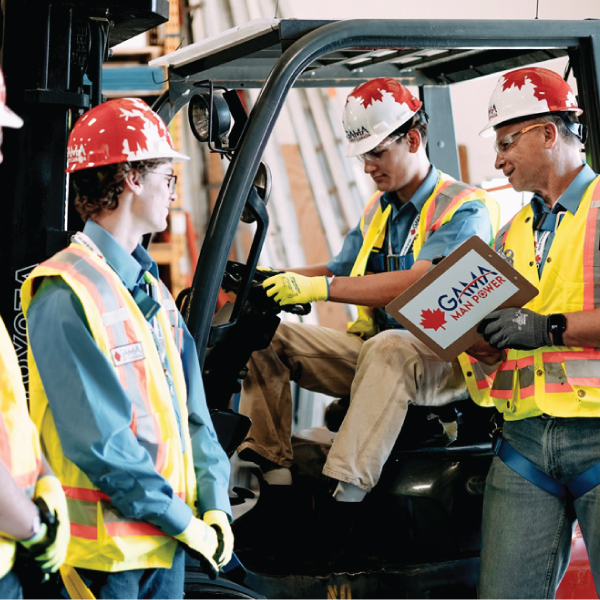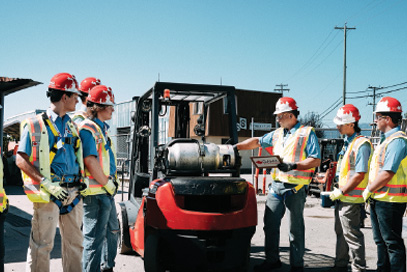Safe Operation of
Rough Terrain Forklift on Uneven Surfaces.
Rough Terrain Forklifts are specifically designed to operate on uneven, rugged surfaces often found in construction or outdoor environments. Operators must be trained to safely navigate challenging terrain, load and unload materials, and maintain equipment to prevent accidents or tipping.
Safe Operation of
Rough Terrain Forklift on Uneven Surfaces.
Rough Terrain Forklifts are specifically designed to operate on uneven, rugged surfaces often found in construction or outdoor environments. Operators must be trained to safely navigate challenging terrain, load and unload materials, and maintain equipment to prevent accidents or tipping.
OUR PARTNERS AROUND THE WORLD
OUR PARTNERS AROUND THE WORLD
OUR PARTNERS AROUND THE WORLD
OUR PARTNERS AROUND THE WORLD
OUR PARTNERS AROUND THE WORLD
OUR PARTNERS AROUND THE WORLD
OUR PARTNERS AROUND THE WORLD
OUR PARTNERS AROUND THE WORLD
OUR PARTNERS AROUND THE WORLD
OUR PARTNERS AROUND THE WORLD
OUR PARTNERS AROUND THE WORLD
OUR PARTNERS AROUND THE WORLD
OUR PARTNERS AROUND THE WORLD
OUR PARTNERS AROUND THE WORLD
Intro to
Rough Terrain
Understand the key features and stability controls of rough terrain forklifts for use on uneven construction zones.
Operating
on Uneven Ground
Learn best practices for driving, lifting, and positioning loads on sloped or loose surfaces using rough terrain forklifts.
Rough Terrain Forklift Safety Resources
Guidance on safe operation, hazards, and precautions for rough terrain forklifts.
Best practices for controlling rough terrain forklifts safely in all conditions.
Guidance for safe loading and unloading procedures for rough terrain forklifts.
WorkSafeBC regulations and guidelines for safe operation of rough terrain forklifts.
Toolbox guide for pre-use inspections and safe checks of rough terrain forklifts.
Video showing visibility and safe practices around rough terrain forklifts.
Heavy-Duty Forklift Essentials:
Safe Handling of Loads on Rough Surfaces
Operating a Rough Terrain Forklift requires awareness, precision, and adherence to strict safety standards. This essential training provides workers with the knowledge to maneuver powered pallet trucks safely in warehouses and construction zones. Learn how to prevent accidents, understand load handling, and comply with Canadian regulations to keep your workplace safe and efficient.

ROUGH TERRAIN FORKLIFT
Rough Terrain Forklift Essentials:
Safe Operation of All-Terrain Lifting Equip.
Rough Terrain Forklifts are heavy-duty machines designed to operate in outdoor environments where standard forklifts cannot perform safely. Built with reinforced frames, large pneumatic tires, and high ground clearance, these forklifts are essential for transporting heavy materials across uneven, sloped, or muddy surfaces found on construction sites, farms, and lumber yards.
Operating a Rough Terrain Forklift comes with unique risks that require specialized training. This includes understanding how to assess and adapt to unstable ground conditions, maintain proper load balance on inclines, and use differential steering for navigating tight outdoor spaces. Operators must be skilled in hazard recognition and know how to perform pre-operation inspections that check tires, forks, brakes, hydraulics, and load-handling attachments specific to rough terrain use.
ROUGH TERRAIN FORKLIFT Definition
A Rough Terrain Forklift is a specialized type of lift truck designed to operate efficiently and safely on uneven, unstable, or rugged outdoor surfaces. Unlike standard forklifts used on smooth warehouse floors, these machines are built to handle the demands of construction sites, lumber yards, and agricultural environments.
They are typically equipped with large pneumatic tires, powerful engines, and high ground clearance, allowing them to travel over gravel, mud, snow, and inclines with stability. The design often includes reinforced masts, stronger suspension, and a robust frame to handle heavy loads in unpredictable conditions.
Because of their strength and adaptability, Rough Terrain Forklifts play a critical role in transporting building materials, pallets, tools, and equipment across sites where standard forklifts would struggle or become unsafe. Their use is vital in industries that demand reliability and load handling in challenging outdoor environments.
Rough Terrain Forklifts differ from standard forklifts in several key aspects. First, their tires are large, thick, and air-filled (pneumatic), providing traction and shock absorption on rough ground. These tires allow them to move smoothly over rocks, dirt, or uneven surfaces without losing control or stability.
Second, they usually come with more powerful engines either diesel, gas, or LPG which offer the torque needed for climbing slopes and carrying heavy loads over long distances outdoors. Many models also feature 4-wheel drive and advanced suspension systems for maximum performance in off-road conditions.
Finally, their frames and lifting mechanisms are reinforced to withstand harsh environments, heavy-duty use, and exposure to outdoor elements. This combination of power, mobility, and durability makes Rough Terrain Forklifts essential for industries that operate far from paved surfaces or indoors.
Rough Terrain Forklifts are commonly used in industries like construction, oil and gas, agriculture, and forestry. These machines are ideal for loading and unloading materials in places where uneven ground or unpaved roads make it difficult for conventional forklifts to operate.
On construction sites, they move bricks, steel, wood, and pallets of materials to different areas, sometimes over sloped or muddy terrain. In agriculture, they assist with transporting bales of hay, feed, fencing supplies, and equipment between barns, fields, and storage facilities.
Their ability to handle tough terrain and maintain stability under heavy loads makes them a go-to choice when safety, productivity, and mobility are all required. Wherever a rugged environment meets material handling needs, Rough Terrain Forklifts provide a reliable solution.
The most defining components of a Rough Terrain Forklift include its large pneumatic tires, powerful internal combustion engine, high ground clearance, and reinforced mast. These features work together to ensure the forklift can handle difficult terrain while maintaining safety and performance.
The pneumatic tires are designed to grip loose surfaces and absorb shocks, making them critical for rough outdoor conditions. The engine, usually diesel-powered, delivers the high torque necessary for lifting heavy materials on uneven surfaces or gradients.
In addition, the design often includes a heavy-duty chassis, weather-resistant controls, and advanced steering mechanisms. Some models also offer telescopic booms for extended reach or side-shift functions for added versatility. Altogether, these components give Rough Terrain Forklifts their strength, stability, and adaptability in extreme work conditions.
Most Rough Terrain Forklifts are powered by internal combustion engines, typically running on diesel, gasoline, or propane. These engines provide the necessary strength and torque for demanding outdoor work, where electric power would be insufficient or impractical.
The high-powered engine allows the forklift to lift heavier loads, climb inclines, and maneuver through dirt, gravel, and other rough surfaces without losing performance. In contrast to electric forklifts, rough terrain models don’t require frequent charging and can operate continuously over long shifts, which is ideal for construction or remote job sites.
Some modern models are starting to incorporate hybrid technologies, but internal combustion remains the standard due to its durability and ability to function in remote areas without the need for charging infrastructure. For rugged and reliable operation in harsh outdoor settings, combustion-powered Rough Terrain Forklifts remain the preferred choice.
Training is essential for safely and effectively operating a Rough Terrain Forklift because these machines pose unique challenges compared to standard forklifts. Their use on uneven surfaces, exposure to weather, and powerful engines require operators to have specialized skills and situational awareness.
A certified training program ensures that operators understand how to conduct pre-operational inspections, assess terrain hazards, handle variable loads, and maneuver in unpredictable outdoor conditions. Training also covers the safe use of controls, emergency procedures, and how to maintain balance and load stability on slopes.
In Canada, operator training must meet national and provincial safety standards such as CSA B335 and relevant OHS regulations. Proper training reduces the risk of accidents, equipment damage, and costly downtime, while improving job site safety and productivity for all personnel involved in Rough Terrain Forklift operations.
ROUGH TERRAIN FORKLIFT Legislation
Yes, Rough Terrain Forklifts are regulated under Canadian federal and provincial occupational health and safety (OHS) legislation. These machines fall within the broader category of powered mobile equipment or lift trucks, and they must comply with safety standards established by organizations like the Canadian Standards Association (CSA).
The key national standard governing forklift safety is CSA B335: Safety Standard for Lift Trucks, which outlines operator training, equipment maintenance, inspection requirements, and safe use procedures. Provinces such as British Columbia, Ontario, and Alberta incorporate this standard into their OHS codes, ensuring a unified approach to safety and compliance.
Employers are legally responsible for ensuring that Rough Terrain Forklifts are used in accordance with applicable legislation. This includes training operators, conducting regular equipment inspections, and maintaining detailed records. Failing to follow these rules may result in penalties, stop-work orders, or serious liability in the event of an accident.
Canadian law requires all operators of Rough Terrain Forklifts to be properly trained and certified before using the equipment. The training must meet the requirements of CSA B335, which specifies that operators receive instruction in both theory and hands-on practical components.
The training covers safe operation techniques, hazard recognition, stability and load control, terrain assessment, and emergency procedures. Operators must demonstrate competence in real-world conditions, including uneven ground and variable weather, which are common in outdoor job sites.
Employers must retain documentation proving that the operator has received proper training. If equipment is upgraded, job conditions change, or a worker is observed operating unsafely, refresher training is mandatory. Compliance with these training requirements is essential to maintain legal operation and ensure workplace safety.
Yes, all Rough Terrain Forklifts must be inspected daily before use and annually by a qualified technician, in accordance with CSA B335 and provincial OHS regulations. Pre-operational inspections are typically done by the operator and must include checks on tires, brakes, steering, forks, lights, warning systems, and hydraulic functions.
These inspections are meant to identify wear, damage, or other hazards that could impact the safe performance of the forklift. If defects are found, the equipment must be tagged and taken out of service until repaired. Employers are required to provide inspection checklists and ensure completion before each shift.
In addition to daily checks, rough terrain models often operate in harsh conditions, making routine servicing and maintenance even more critical. Failure to perform or document these inspections can result in fines, increased liability, or equipment failure that endangers workers.
Fall protection is not typically required when operating a Rough Terrain Forklift, as operators remain seated within the cab during operation, and the equipment is designed with built-in protections such as overhead guards and seat belts. However, seat belt use is legally mandatory in all Canadian jurisdictions.
If the forklift is used to elevate personnel (e.g., on an attached platform), then fall protection systems such as harnesses, guardrails, and anchor points must be used, and the activity must comply with provincial fall protection laws and CSA standards. In such cases, the forklift must also be approved for personnel lifting.
Employers must ensure all operators understand their responsibilities regarding restraint systems and provide equipment that complies with provincial safety legislation. Failing to implement fall protection where required can result in legal penalties and increased injury risks.
Employers in Canada are legally required to provide a safe work environment for Rough Terrain Forklift operators. This includes supplying CSA-compliant equipment, enforcing daily inspections, and ensuring all operators are trained, certified, and supervised appropriately.
They must also ensure the forklift is used in suitable terrain conditions, clearly mark hazards on job sites, and supply necessary PPE, including high-visibility vests, safety footwear, and hearing protection where required. Employers are also expected to develop written safe work procedures and emergency response plans.
Failure to meet these obligations may lead to enforcement actions by agencies like WorkSafeBC, Ontario’s Ministry of Labour, or Alberta OHS, including heavy fines, stop-work orders, or criminal prosecution in severe cases. Compliance is not only a legal duty it’s a cornerstone of responsible risk management.
Violating safety regulations for Rough Terrain Forklifts can lead to serious legal and financial consequences for both employers and workers. Penalties may include regulatory fines, suspension of operations, or charges under provincial occupational health and safety acts.
For example, if an operator is untrained or uses a forklift in unsafe terrain without proper precautions, and an incident occurs, the employer may be held liable for negligence. These violations can also impact a company’s reputation, lead to increased insurance costs, and trigger civil lawsuits from injured parties.
In addition to immediate penalties, recurring violations may result in more frequent inspections, stricter compliance audits, and even disqualification from bidding on public contracts. Following proper legislation and implementing strong safety practices around Rough Terrain Forklifts is essential to protect workers and maintain a company’s standing.
Other Courses You May Be Interested In.
Workers who complete ROUGH TERRAIN FORKLIFT training often continue their safety education with the following programs:"
More Courses
Online Courses
"Explore & Book Online Courses!
Have a Question?
"We’re here to help! Click the button to get in touch."


